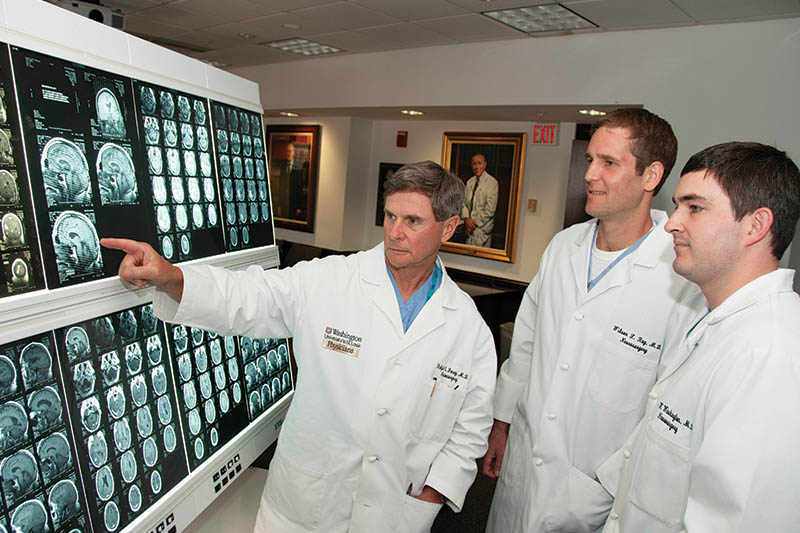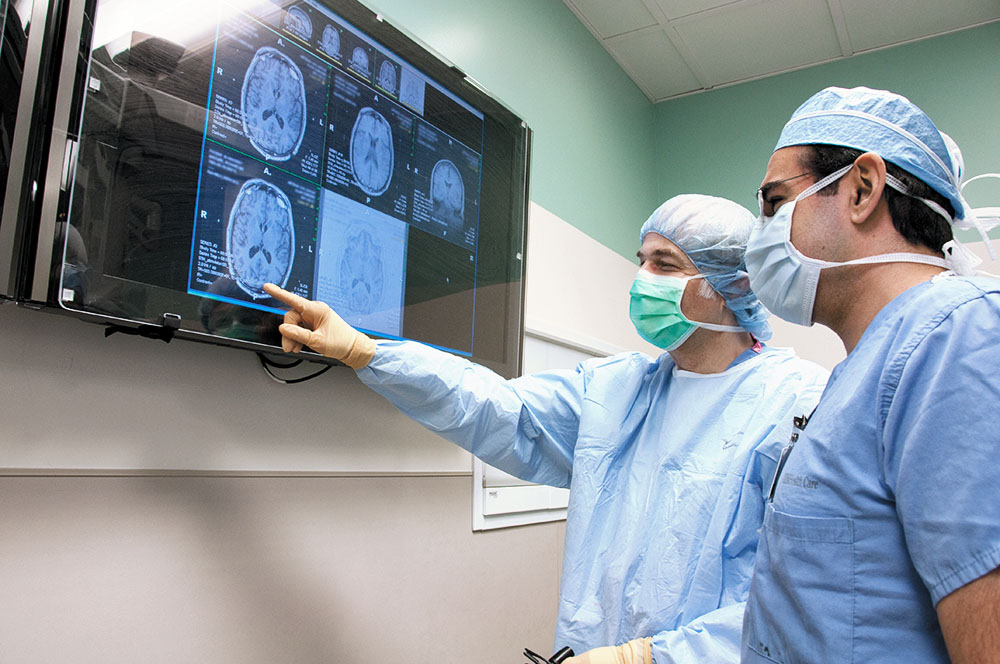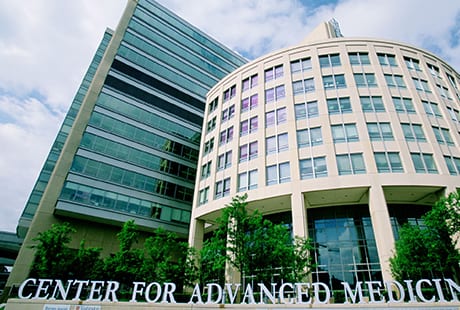What is normal pressure hydrocephalus?
Call 314-362-3577 for Adult Appointments
Normal pressure hydrocephalus (NPH) is a neurological disorder that affects elderly patients. Some estimates suggest that over 700,000 Americans may have NPH, the majority of whom become debilitated by dementia and are often placed in care homes.
NPH is characterized by abnormal buildup of fluid in the brain, which progressively causes dementia and other neurologic symptoms including gait difficulties and urinary incontinence. The diagnosis of NPH remains challenging and requires an expert multidisciplinary team. However, NPH is surgically treatable if diagnosed and treated in a timely fashion.
Why rely on Washington University experts to treat your hydrocephalus?
The Normal Pressure Hydrocephalus Center at the Washington University School of Medicine and Barnes-Jewish Hospital is a consortium of experts dedicated to the assessment and treatment of patients with NPH. Our experts include experienced neurosurgeons, neuroradiologists, and a dedicated team of nurse practitioners and allied health personnel from physiotherapy, occupational therapy and psychology.
Treatment options
Initial investigations include:
- Careful assessment of gait and cognition, ideally by an expert neurologist/neurosurgeon
- CAT Scan or MRI of the brain to show the enlarged fluid spaces in the brain
Then treatments may include:
- Removal of excess cerebrospinal fluid (CSF)
- Evaluation of whether symptoms improve
- Potential placement of shunt to treat NPH
A unique aspect of our multidisciplinary process is that we work together to expedite the evaluation and treatment of potential NPH patients, and to continue to monitor the success of your treatment over time.


